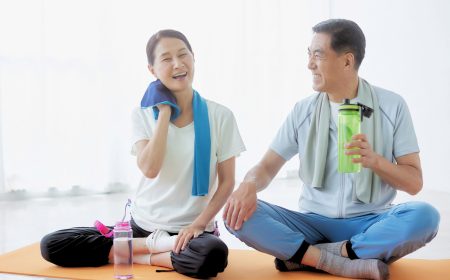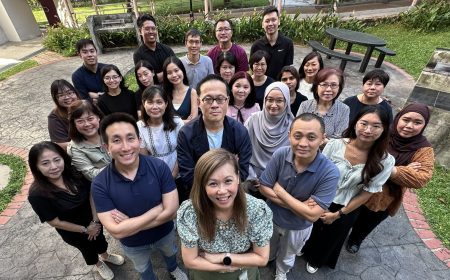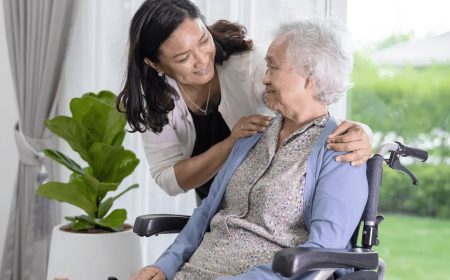As a caregiver, it can be challenging to determine when your ageing parents might need help with basic self-care tasks, also known as Activities of Daily Living (ADLs).
Many older adults feel embarrassed asking for help with personal care activities such as bathing or toileting. Some want to avoid troubling their loved ones, while others simply do not realise they require assistance.
One of the most effective ways to address this is by getting familiar with the term ADLs and what it involves. If you are a family caregiver, understanding ADLs can better equip you in identifying difficulties in your loved one’s abilities to carry out basic everyday tasks. This enables you to offer appropriate support, like modifying the environment, providing assistive devices or offering physical aid.
Professional ADLs assessment can be opted for, which will allow caregivers to identify specific areas that need more attention and support. Read on for more information and check out our recommendations on affordable care options that can help support your loved one in his/her ADLs.
What are Activities of Daily Living (ADLs)?
Activities of daily living (ADLs) are essential skills an individual needs for self-care and independent living, such as feeding oneself, walking, and using the toilet.
These self-care skills are vital to a person’s quality of life and physical safety. Young, able-bodied individuals can usually perform ADLs with ease, but the ability to cope with these routine activities tends to decline with age. Since ageing is a natural process, it’s important for everyone, not just caregivers, to understand how to manage ADLs if they wish to age gracefully and independently.
What are the 6 Activities of Daily Living?
The 6 basic ADLs include dressing, toileting, washing, feeding, mobility, and transferring, which are all required for daily life.

Dressing
Dressing refers to the ability to select appropriate clothes, put it on, and look after one’s appearance. It can also mean putting on prosthetic limbs, braces, or other surgical appliances, where applicable.
Seniors with conditions which affect the brain, such as dementia and stroke, or conditions that result in pain and stiffness of the joints, such as arthritis, could require physical assistance while getting dressed, as they may have difficulty fastening clothes and coordinating movement.
Toileting
Toileting is the ability to get on and off the toilet and use it appropriately. It also includes cleaning oneself without assistance.
Toileting difficulties that are not addressed can have psychological impact on the elderly, causing feelings of embarrassment and shame. Occupational Therapy, and the use of adaptive equipment, such as grab bars and incontinence pads, can help maintain their dignity by giving them back some control.
Washing
This is the ability to wash one’s face and hands, or take a shower/bath without help.
While this seems like a straightforward task, it can be challenging for seniors who struggle with balance and coordination. Installing non-slip tiles and offering physical assistance can help to prevent falls.
Feeding
This refers to the ability of a person to feed oneself (food preparation not included).
Cognitive and physical decline can cause feeding difficulties, resulting in malnutrition or choking if left unchecked.
Mobility
Mobility is one’s ability to walk, sit, stand and move from one place to another.
Individuals who have low mobility can benefit from physiotherapy or mobility aids such as canes, mobility scooters and wheelchairs to maintain their independence.
Transferring
Transferring focuses on one’s ability to move from one place to another, such as to move from the bed to the wheelchair, or from the sofa seat to a standing position.
Falls may occur during transfer, and the risk increases with adults experiencing age-related degeneration of muscle mass causing weakness.
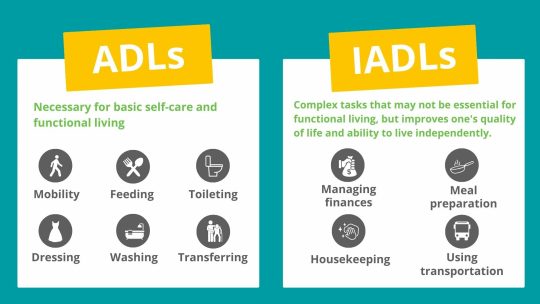
The Difference Between Instrumental Activities of Daily Living (IADLs) and ADLs
While ADLs are necessary for basic self-care and functional living, Instrumental Activities of Daily Living (IADLs) are more complex tasks that are may not be essential for functional living, but that can significantly improve one's quality of life and ability to live independently.
Knowing the difference between ADLs and IADLs can help a caregiver in developing a care plan that addresses their loved one's unique needs and challenges.
Examples of IADLs include:
Managing finances, such as paying bills and budgeting.
Using transportation, like driving or taking public transit.
Meal preparation, including planning and cooking meals and shopping for groceries.
Housekeeping, such as cleaning, laundry, and home maintenance.
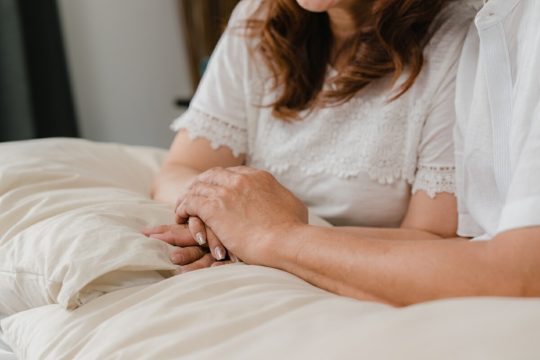
Signs that a Loved One Needs Help with ADLs
Look out for these common signs that may indicate your loved one needs extra support with self-care.
Bruises and wound marks on the body can be indicative of frequent falling due to the loss of balance and mobility.
Obvious change in weight. Weight gain is common in seniors who become more sedentary due to mobility issues. Likewise, weight loss can occur when they are unable to feed themselves properly.
Untidy appearance and poor personal hygiene can suggest difficulty with ADLs. Pay close attention if your loved one starts to smell bad, or wears the same clothes for days.
Poor housekeeping. A decrease in one’s ability to perform household tasks such as grocery shopping and laundry points to diminishing IADLs and ADLs capacity.
Irritability or confusion. If a loved one is frequently irritable, and has difficulty completing familiar tasks, like using the telephone or making a cup of coffee, it's a sign they’ve lost some ADLs and IADLs capacity.
The inability to perform ADLs can sometimes be a signal of underlying health conditions like arthritis, stroke and Alzheimer’s disease. If you notice a loved one displaying one or more of the following signs, it may be wise to talk to them about their needs, and consider getting an ADLs assessment.

What is an ADLs Assessment?
An ADLs assessment is a tool used by healthcare professionals to evaluate a person's ability to perform basic activities of daily living, and identify the level of assistance they need.
During the consultation with the doctor, caregivers could take the opportunity to discuss their loved one’s current functional status, medical diagnoses, environmental barriers, and potential for change over time. This enables caregivers to provide appropriate care support for maintaining their loved one's independence and quality of life.
Clinicians will perform the ADLs assessment using a Functional Assessment Report (FAR). You can use this report to apply for government financial assistance schemes like the Home Caregiving Grant, or to determine if you are eligible for long-term care options such as nursing homes or home care services. You are likely eligible for financial assistance schemes if you require assistance in or are unable to perform 3 out of the 6 ADLs.
How Do I Get an ADLs Assessment?
Receive a professional evaluation at NTUC Health Family Medicine Clinic, or opt for a house call to undergo an assessment. A disability assessment evaluates your loved ones’ ability to perform the following 6 activities of daily living without help. At our Family Medicine Clinic, we are also able to perform disability assessments for severe disability claims under ElderShield, CareShield Life, MediSave care and Interim Disability Assistance Programme from the Elderly (IDAPE). IDAPE is similar to an ADL assessment but is more in depth and thorough. Only approved assessors are able to perform this assessment.
Make an appointment here or call 67156715 to schedule your preferred date and time.
Where Can I Get More Care Options?
Once an ADLs assessment indicates that your elderly family member requires additional assistance, you can consider the following options depending on the level of care and support needed.
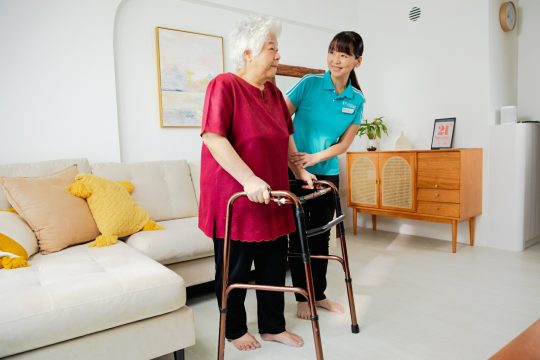
Home Care Services
This is a good option for those who prefer to age in place comfortably, NTUC Health offers affordable and personalised Home Care Services that cater to your loved ones’ daily living needs, while ensuring they receive the joy of companionship. Expect home visits by professional caregivers who are trained to assist with personal hygiene, dementia care, medication reminders, meal preparation and more.

Nursing Home
If your loved ones require round-the-clock nursing care due to conditions like dementia, stroke and Parkinson’s Disease, NTUC Health Nursing Homes offer a safe and award-winning care environment where they can be part of an inclusive social community, and receive assistance with daily activities and living.
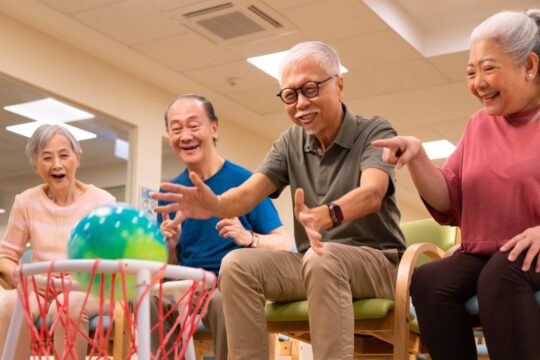
Day Care Services
Families looking for support during the daytime, can consider the following range of affordable Day Care Services by NTUC Health. To make an enquiry for any of these services, click on the links provided.
- Senior Day Care offers older adults a place to enjoy social and recreational activities on weekdays, while receiving support with ADLs. You can focus at work, knowing that your loved ones are in the care of professional caregivers who will manage their social interaction, exercise, nutrition, wounds and medication needs.
- Dementia Day Care focuses on care for seniors living with dementia. Apart from ADLs support, there are also specialised programmes designed to give your loved ones a sense of purpose and dignity, while maintaining their cognitive and physical functions.
- Flexible Care provides a convenient solution to families who require support for just a few hours in the day, or on an ad-hoc basis. Those interested in a home-based option may sign up for DayCare+, an online programme designed to keep seniors active and engaged in their own residence. Other popular centre-based services include Care On Sunday, and Fun with Friends, a 3-hour activity-filled programme for seniors with dementia.
- Day Rehabilitation caters to seniors who wish to recover lost mobility resulting from illness or injury. Participants may opt for in-centre or tele-rehabilitation sessions.
Rehabilitation
If your loved ones need help regaining functional ability after a surgery, illness or fall, the following rehabilitation services can help them achieve their strength and functional mobility goals.
- Occupational Therapy aims to help seniors who have difficulty performing essential daily tasks such as bathing and meal preparation. Our occupational therapists can help you achieve this through rehabilitation, home modifications, and the use of assistive devices, with the ultimate goal of improving your loved one's ability to live independently and readjust to their normal life at home, work, and in society.
- Physiotherapy for Seniors serves older adults who experience joint pain, muscle weakness, and suffer from illnesses that cause physical impairment, like stroke, or heart and lung disease. It is also suitable for those with increased risk of falls. This form of therapy combines wellness education, strength and balance training, and fall prevention techniques to improve one’s mobility, stamina and quality of life.
Summary
If you have a loved one who needs care support for activities of daily living, we are here to support you. Take a short quiz to find out your needs. We can explore more ways to help make your caregiving journey easier.
